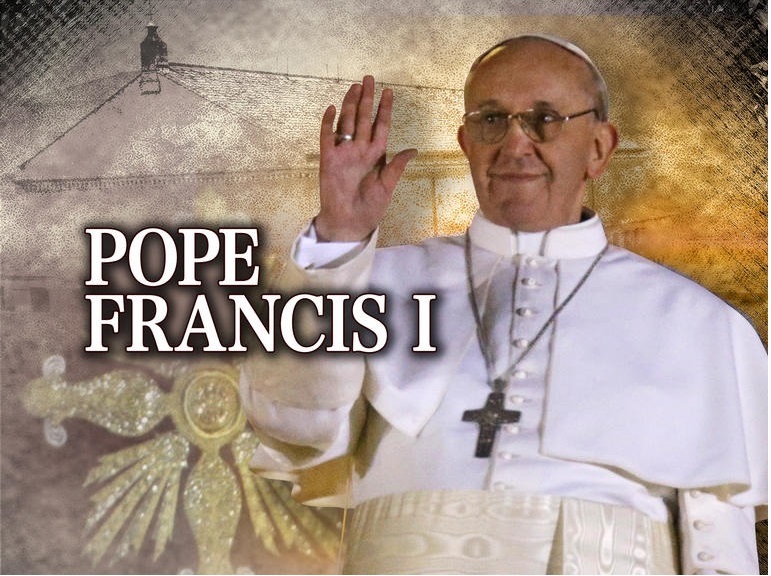
In the order in which these messages were posted:
I am heartened. Teaching for most of my career at a Jesuit university and being Catholic myself, I am hopeful that our new Pope will lead the way to necessary, overdue change. As his chosen name and background indicates, he is a champion of Social Justice. I believe that the Holy Spirit is truly at work in this monumental decision.
Georgie Ann Weatherby weatherb@gonzaga.edu
Gonzaga University
The first Jesuit pope, the first Pope from The Americas, the first pope to take the name Francis, after the mendicant from Assisi who was called by Christ to "rebuild the church". I am overwhelmed by symbolism.
But more importantly, I am hopeful for the Catholic church for the first time in over 20 years.
I really love that he is a humble, intelligent and pastoral man. There is a God! Pace et Bene a tutti.
I am hopeful that we as a Church will be able to have a dialogue as sons and daughters of God, that the rights of Children will be considered and the dignity of humanity will be promoted.
Elsie Miranda emiranda@mail.barry.edu
Barry University
Personal holiness radiates from this pope. But as St. Teresa of Avila commented, in a choice between a holy man for confessor and a theologian, she preferred the trained theologian. It remains to be seen how his pastoral dedication will translate into reform. He seems to be totally different from the combative take-on-the-government types who parade around these days, which means that he carries the "curse" of Pius XII for tolerating those in power as a means to negotiate space for the church. NB - were he in the US, would that mean siding up with Obama? The most important decision he may make might be to abandon the one-size-fits-all approach of JP II and Ratzinger in order to promote church cooperation with those seeking to move towards social justice without radicalism. Then too, he can always push the "I convoke a Council" button to replace the status quo with dialogue -- not about doctrine -- but about action. I suggest returning to Communio e Liberazione for the substance of his approach to spirituality as means to reform of institutions.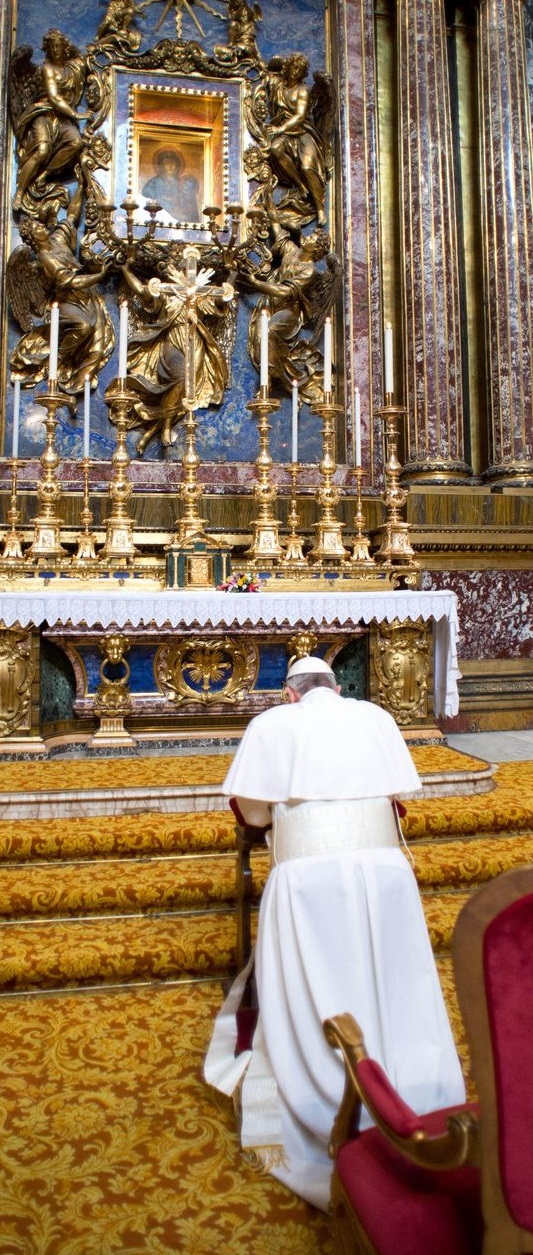
Anthony M. Stevens-Arroyo stevensa@ptd.net
Brooklyn College
The new pope has some unfortunate antecedents in his dealings with the last military regime in Argentina where he, like most of his colleagues in the hierarchy were actively in league with a horribly repressive regime.
One hopes for a commitment to social justice but that is not prominent in the bulk of the Argentine hierarchy so there is good cause for concern.
Daniel Levine dhldylan@umich.edu
<
I live in Buenos Aires. The new Pope has been bishop in this city. He´s been a great pastor; very close to the most excluded and poor people in the city. He strongly supported the church´s activity in the city´s slums. I teach at the Catholic University and due to his influence, the University has also begun an important activity in the slums.
He is a simple man, close to the people, very sensitive to social injustice. The name he chose, Francisco, reflects who he is, and gives hope for some change in the Church.
Let me add that Adolfo Perez Esquivel, Peace Nobel Price in 1980 for his commitment with human rights in Argentina during the Military government, believes that Bergolglio was not involved with the repressive regime. I also believe he is innocent.
Many of our bishops were in fact were in league with the repressive regime. Bergolgio was not.
See this link
http://www.bbc.co.uk/mundo/ultimas_noticias/2013/03/130314_ultnot_perez_esquivel_papa.shtml
Ana Lourdes Suarez analourdessuarez@gmail.com
The pope said and did several things that indicate the radicality of change we can expect. He called both himself and Benedict "bishop" and noted he would be leading Rome, as if only the Church by example or in association with the other bishops. Importantly, wearing a small wooden cross, he took off the stole after giving the blessing. Ritually, that gesture signals that he certainly sees both his priestly and papal powers limited in important ways, a vision missing from the current theology of priesthood. Whatever his own views, I can see him leaving important decisions and changes to the bishops to decide. As far as politics in Argentina, I lived under Franco and had a machine gun at my head once, so I have a hint at what constraints he must have had. If he could maneuver around that kind of oppression and violence, we have a man with mettle. 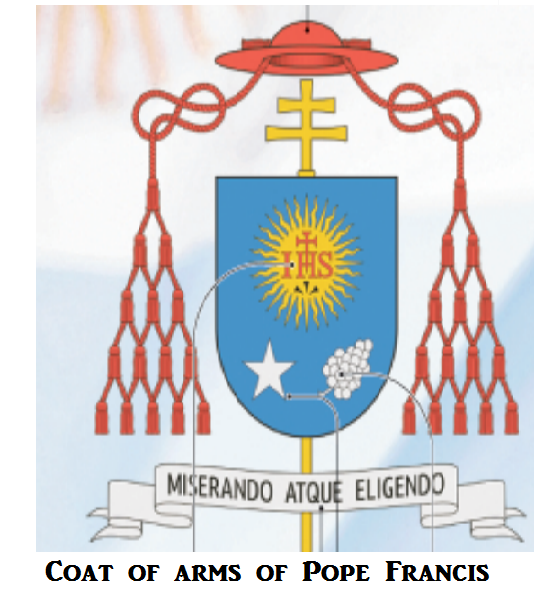
Clare McGrath-Merkle cmm4@verizon.net
I am encouraged by this choice. While I haven't studied his background, my first impression of him is very positive. I loved his humble beginning as he asked the people to pray for him and I am so thankful to hear that he is so passionate about caring for the poor. I feel that perhaps we will be led by a man who will bring our focus back to the doing the work of Jesus. I continue to pray because there is much work to be done and he is a 76 year old man. Not an easy job for sure.
Mary Whiteside mary.whiteside@att.net
I didn't see humility as much as a new collegiality and demystification. He refused the limo last night and rode on the bus with the other cardinals. Let's put it this way. Any bishop still sporting a caddy, limo, bling and not cooking his own pasta ever night is about to be in for a bit of a shock.
Clare McGrath-Merkle cmm4@verizon.net
I am uncomfortable with saying so soon that we have a holy and humble pope. "Holiness" and "Humility" are attributed by most bishops to most popes almost pro forma. They have become "weasel words" in the ecclesiastical vocabulary. Many of the interviews that I heard over the past day and a half also commented on the humility and holiness of John Paul II and Benedict. St. Francis (the one that is being used to symbolize the new Pope's charism) suggested that talk of a holy person's virtues is often an cover for the speaker's claim to those virtues in her/himself. The saints follow God, he suggested, as those who extol their virtues try to share in their glory.
Taking the lead from the Poverello I would suggest a wait and see attitude. Now is not the time to be overly gushy or cautiously suspicious. After all, the Church is bigger than the Pope and the office of papacy has fallen into a serious level of irrelevance in the lives and consciousness of many Catholics. The cultural mind set (closed world system, as C. Taylor describes it) produces euphorias and fan-doms of celebrity, spectacle, and the reduction of complex human predicaments to simplistic "common sense" descriptions. Bias, as Lonergan reminds us, is too often present in immediate judgments.
I was inspired by the Pope's choice of names; buoyed by his demeanor on the loggia; and joined him in prayer when he asked me. But...
But my hopes for the new Pope are still inside me; partially because I myself am so unsure of what the will of God is or how to discern the active presence of God in the signs of the times; partially, because I suspect the curial bureaucracy and the difficulty it will present for any pope to reverse claims of what have been framed by J-P II and Benedict as fixed, absolute, and unchangeable "Catholic teachings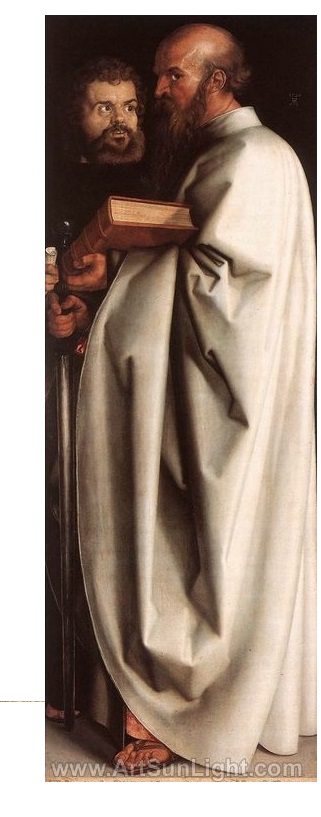 ".
".
Perhaps this is a time to place less expectations on the Pope and papacy. Instead, it should be a time of quiet, during which local churches --dioceses, parishes, Catholic groupings--learn how to reflect and discern who they are and what their vocation entails.
Richard Shields richshields@sympatico.ca
University of St. Michael's College
Toronto, Ontario CANADA
While I wouldn't want to give in to gushing, Richard, I have been reflecting on the highly emotional response visible on the TV last night and in the many, many conversations at work and with family and neighbours. Everyone had some 'feeling' about him. A lovely woman at my parish emailed a group of us to say 'we are orphans no more'.
I don't want to sink into papolatry here but I do think this moment gives us a glimpse that the petrine ministry holds an important meaning for us. There is a sense in which we expect it to be a unifying force and a sign to us. There seems to be a craving for the care we expect to receive. I agree that we cannot look to any pope to be the answer to all the church's questions or difficulties and that this is an important time for us to ask ourselves what our own role is - both individually and locally. I do think that outpouring of emotion is saying something more than just an expression of fan-dom, though. We rejoiced before we knew who had been chosen. The crowd cheered with no knowledge of who would hold the office. This seems to me to point to the importance of the office and the ministry itself, regardless of the holder of that office.
Anne Jamieson anne.jamieson@mail.utoronto.ca
University of Toronto
Impressions from someone like me, a former academic theologian turned archivist and part-time church historian, may not matter much. Anyone faintly interested in Catholic ecclesiology knows that a crucial aspect of any papacy is style over substance. It would seem that Pope Francis presents a different style than that of his predecessors. Even on his first day, it is noticeable. The trappings of office that he seems to eschew may encourage some, but I think it is important to focus less on these externals, with all their symbolism, and more on the substance of the man. For this, we need to take a breath (not hold our breath!) and give him time. Many commentators have called Pope John Paul II "the Great." Whether this is so or not is really a test for the ages and I believe we are still too close to his death to apply such a statement. So, too, with the Argentine. He may also be great, but we might have to wait a while before applying the moniker.
Some have pointed to Pope Francis' "firsts"--first non-European in 1300 years, first Jesuit to be elected, and so on. For me, while I am happy that a Jesuit now occupies the office, it is not a helpful hallmark or standard by which to judge his worthiness, except on one score: he is a religious. I think that will make a difference in the new papacy. Religious are often forced into circumstances that require them to build community among themselves and to do their level best to make it work for at least two reasons--to model holiness of life for others and to be pastorally effective. I hope this will be a happy and profitable change for the Roman curia to experience and I hope the new pope is successful in bringing it about.
Patrick J. Hayes, pjhayesphd@gmail.com
The fact that he is a Jesuit gives me hope. The Order's dedication to social justice has made a profound difference in many lives, and I hope in his as well.
Linda Maloney lmmaloney@csbsju.edu
A new Pope for a new Church
The Pope’s name reflects a program, and in few occasions a name like Francis becomes so evocative. Several ideas come to mind: the evangelical simplicity; the effort to “repair the Church”; the love of poverty and the poor or excluded; and a very immediate sense of the proximity of God. This is a very demanding name; you need big courage to assume it.
If the new Pope really intends to “repair the Church”, as St. Francis listened in a famous dream, some suggestions can be advanced:
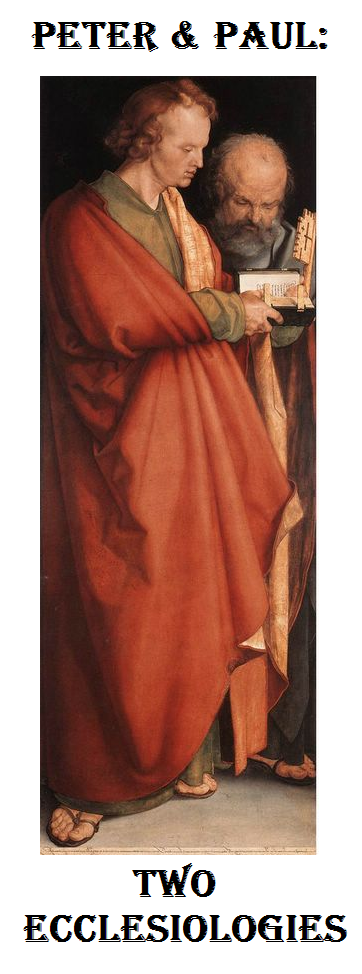
- Improve the representativeness of government’s organs: there is still a too disproportionate presence of Italians, so much cardinals as officials in the Vatican.
- Increase the mechanisms of control of the administration: demand higher levels of accountability.
- Elect officials from a concourse of merits rather than from co-optation and mentoring on the part of those with more influence.
- Provide higher transparency at all the levels of the administration, mainly in the economic field and in decision process.
- Improve the administration and the decisions, starting from a good use of the available information and the help of independent experts.
- Close the so called “Vatican Bank”, source of so many scandals in the last decades.
- De-centralize the administration; transfer several Vatican offices abroad.
[Last proposals have been inspired or supported by a recent analysis published in The Economist:
http://www.economist.com/news/business/21573101-management-tips-catholic-church-pope-ceo]
There is a lot to be done if the new Pope intends to repair the Church and to restore its credibility. The above suggested points are just ideas to improve management; a starting step for a transitional moment.
Lluis Oviedo loviedo@antonianum.eu loviedo2@hotmail.com
Pontificia Universita Antonianum
00185 Roma -Italia
Obedience to God rather than men
The election of Pope Francis has generated a lot of optimism and enthusiasm, like in the years following Vatican II. In 1968 there was even the expectation that the pope would soon wear a black suit like the bishops all over the world, but ten came Humanae Vitae. Today’s optimism may fade away in a few weeks or months but the main issues remain. This election is an opportunity to reflect about them.
I see obedience as a major issue in the church. I have very strong reservations about the obsequium religiosum, the religious submission of mind and will due to the magisterium at all times, “even when not speaking ex cathedra” (LG 25a). This submission reduces the faithful to uncritical subjects with no mind of their own “outside the box.” Not only does this conception reduce the church to an institution like IBM or the US navy, worse, this “religious” submission tends to require obedience to men rather than God. Although in the Catholic Church God speaks through the church, “religious assent” implies that the Spirit speaks only through the magisterium. Nowhere in Vatican II and church document since then is it clearly stated that obedience is ultimately due to God rather than church men.
In order to enforce uniform obedience, the church government has persecuted its own prophets (e.g. the theologians who inspired Vatican II) and has reduced the bishops to parrot official teachings rather than create lively discussions about them. Why is the teaching church afraid of dissent? Don’t they know from Gamaliel that if dissent is from God, “there is nothing you can do about it?” In the absence of healthy dissent, the spirit in the church tends to be asphyxiated.
In my interviews of evangelicals, I find again and again that they are former Catholics, often trained in Catholic schools and prominent in parishes, who have discovered Jesus Christ in an evangelical church. As a consequence, spouse, children, and often relatives have followed them. Too often the Catholic Church appeared to them as more institution-centered or men-centered than Christ-centered.
So what are my hopes? With Pope Francis we may have a model of Christ-centeredness; so let us hope that he will be able to mold the whole institution to be and appear as Christ-centered rather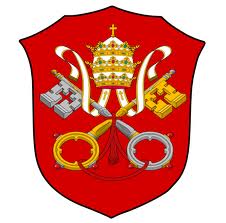 than a government by men following men-made traditions.
than a government by men following men-made traditions.
Pierre Hegy hegy@adelphi.edu
Adelphi University
I am an Evangelical who was raised Catholic. It is my hope that the new pope will bring in a Christ-centeredness to the RC Church. There is much to learn here about the grace of God, teaching that is lost to, if not unheard of, for many Catholics.
Conversely, many Evangelicals need to be reminded about looking after the poor. I've always thought that Catholics have a higher and greater capacity for compassion and social justice issues.
Both are needed. We need truth, unity, compassion with deeds, a social conscience and guts.
This is an exciting time. Clearly, there's a lot we can all learn from each other. Iron sharpens iron.
Al Baker a.baker@ucbcanada.com
“Listen to the prayer of your people, and may our Pope, Vicar of Christ on earth, strengthen his brethren in the faith” (Mass ‘for the Pope’ in the Roman Missal). The Pope is one of the authentic signs of unity in the Church. Pope Francis said yes to his call, and I think his example is an invitation for individuals, parishes and communities to pray and discern if they too are answering their own call from God (a point that Richard Shields made earlier). These various ministries and vocations in the Church are linked (1 Cor 12:4-7). Each of us is strengthened whenever someone says ‘yes’ to the Lord’s call. I’m not worried about the new Pontiff; I am more worried about whether I am living out my own vocation! That seems the best way for me to help the Church and to be helped by the Church, as we live out our shared faith and hope in Christ Jesus.
Marc Tumeinski mtumeinski@annamaria.edu
For what it is worth I do not think that there is such a thing as "latino theology" except as it refers specifically to latino populations in the US which is not the same thing at all as Latin America.
At issue is Liberation Theology, which although it had an early codification and naming in Latin America and by Latin Americans has antecedents and also has comparable expressions, for example in contextual theology in South Africa.
In any event, I am not sure that liberation theology is a necessary element in the choice of a simple life style, although it is certainly open and encouraging to that for the choice of a simple life style by church people and by the official leaders of the church. There are, again, ample precedents.
Daniel Levine
Francis of Assisi may embarrassing for some precisely in his loyalty to the Holy See and his devotion to priests. His literalness in living out in 13th century Italy what he read in the Gospel was inseparable from his connection to the total self-renunciation--kenosis--of Jesus in the Crucifixion. Thus the powerful symbolism of the Stigmata in the Franciscan spiritual legacy.
Francis of Assisi believed that an intimate union with the crucified could not be authentically realized without the Eucharist. Even if priests lived sinful lives, unaware of themselves as bringing Christ to the world through their celebration of the Mass, Francis revered them as vessels of grace. "It is my will to love and honor them [priests]... and I will not look at their sin, because I discern the Son of God in them ... and I do this for this reason that in this world I see nothing bodily of the Son of God but His most holy body and blood which priests have in charge and they alone administer."
What Pope Francis thinks and how the saint from Assisi inspires him will be, I believe, the first sentence in a dialogue about the Church. Avoid the diatribes that characterized the dispute over poverty popularized by U. Eco in the Name of the Rose, this is not a political issue. It is an issue that does bring us back to a meditation on the call to discipleship, the meaning of a community of faith, and the materiality of the Good News. It is a conversation that must inspire reflective re-imagining of what people will see when they look at the Church.
Richard Shields richshields@sympatico.ca
My hope is for a great emphasis on social justice and a louder voice against the American budget attempts to remove safety nets for the poor and sick. We need to hear from the papal leadersthip, rather than from a few followers of Ayn Rand who claim to understand the Catholic option for the poor. My wish is a re-examination of the church's teaching on sexual matters with a lesser emphasis on biological teleology and more on the human person in totality. My hope for the church is that we all see ourselves as perpetuating the incarnation and the call of Jesus to "do this in memory of me," that is to become bread broken and nourishment for those we encounter in our lives. My wish is that this new pontiff truly is a bridge between this key insight and the practice of we who occupy the pews. My trust is that the risen Christ will ultimately bring all together in God's love.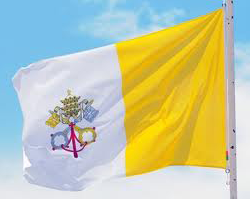
Dee Christie dlchristie@aol.com
I want to get the historical context right for a long view of our present crisis as Church and as orthodox believers. In the end I don’t think a different kind of devolved papacy will make that much difference, certainly not positively. It would make a bad situation worse. An extreme devolution toward congregationalism, with daily polling, would mean the end of a believing Church in continuity with the “Great Church” of the past two millennia. The present papacy is an implementation of Vatican II, and in continuity with it, one possible implementation among many.
Listening to the media for these past couple of weeks has been horrific. but John Newman puts it all in perspective [An Essay on the Development of Christian Doctrine, p. 383-84]:
Pope Francis looks promising, perhaps even incorrigible!
Dan Sheridan dsherida@sjcme.edu
The papacy and the priesthood, in my opinion and generally, are subject to a microbial infection once in office that convinces them of their own importance and rectitude (in certain matters). It would be good for the whole church if we could find an antidote. I have nothing against the way the Catholic church is organized (popes, bishops, deacons); it is as good or better in some respects than the ways other Christian churches organize themselves ( and it is very, very old). I am not a congregationalist in any sense of the term. But I do think that popes and bishops should abandon their special divine pretensions and find ways to listen to the rest of us, all 1.2 billion. We are ALL the church; they are not, they are only a part, a tiny part. How they came to be called "the Church" explains a great deal of the current crisis.
This is my wish and prayer for Pope Francis: Lead us in the right path!
William M. Shea wshea@holycross.edu
College of the Holy Cross, Worcester, MA 01610
This is the first time I've participated in one of these discussions, primarily because I'm an outsider. I know very few of the participants (maybe only one), and I'm a Protestant –– not so much by design, but by birth.
I decided to write because of the comment: "we are the church." Quite a few of my closest friends and relatives are liberal Catholics, happy with the Mass, the pageantry, and some of the socially progressive views. Well, my liberal Catholic friends and relatives, too, will defiantly contrast themselves with the hierarchy by asserting, "WE are the church!"
I'm wondering how true this can be. I'm wondering if one can really exclude the hierarchy in a nondemocratic and authoritarian social structure like the R.C. Church. I keep reminding my politically conservative American friends who display hostile attitudes towards the government and want to "shrink" it that, in effect, they're talking about disempowering the institution whose leaders they know and elect and turning their lives over to corporate America whose leaders they don't even know. Can we really exclude those who determine the doctrinal/ideological stance, control the purse strings, set and prioritize policy as somehow not the church/nation? Is this anything more than romantic mythology? Just wondering...
Anton K. Jacobs antonkjacobs@earthlink.net
Kansas City Art Institute
I find I agree with many of William Shea’s sentiments. I hope for a Church in which the bishops and the Pope preach the authentic Gospel of Jesus Christ. I cringe when I hear of bishops and priests who are mean-spirited. Are they any more subject to arrogance than college professors?
I do think we should speak out. We should engage one another. I am not saying that I agree with every position of every church authority uncritically. But a little nuance would go a long way. The problem with many who hold critical positions on the church, among whom I occasionally count myself, is that they often lack a jot of self-criticism. That is why they often sound so shrill. Let’s hope for the best.
Michael Agliardo, SJ, magliardo@luc.edu
Department of Sociology
Loyola University Chicago
The authentic teaching ministry of the papacy, in its subordinate relationship of service to the divine Revelation of Tradition and Scripture (CCC 86), is also an ongoing sign of hope. An active attitude and committed practice of listening to and learning from the apostolic Church's teaching is a joyful and necessary part of growth in discipleship.
Doubts will arise in this fallen and redeemed world, which makes me all the more appreciative for the Church, the community of disciples with all its various ministries and vocations, and for the ongoing gifts of grace. This too gives me hope.
Marc Tumeinski mtumeinski@annamaria.edu
My most prayerful hope for Pope Francis is that he has heard the same calling that Saint Francis heard from the Cross of San Damiano which said, “Francis, rebuild my church; don’t you see it’s in ruins?” I hope that our new Pope asks himself in what way is the Church in ruins now in the 21st century. I hope that Pope Francis realizes that the Church is in ruins because it is not heeding the spiritual call felt by so many women who, like Clare, are called to serve the Church. I hope that Pope Francis recalls how Francis and Clare ministered to the marginalized side-by-side as equals. I also hope that our new Pope realizes that the Church is in ruins because it is not in true solidarity with those who, like homosexuals, have been marginalized throughout history.
Ultimately, I hope that Pope Francis can realize that the Church is in ruins because its gaze is failing to see the hand of God at work in those who have been marginalized throughout Church history, especially women and homosexuals. If Pope Francis can realize this then perhaps he will also realize that now is the time to enter into true solidarity with the marginalized so that the Church can be rebuilt in a way that invites and inspires all the faithful to walk in the footsteps of Francis and Clare who imitated Christ in their compassionate ministry for the Church.
Robert Pennington rpennington@stu.edu